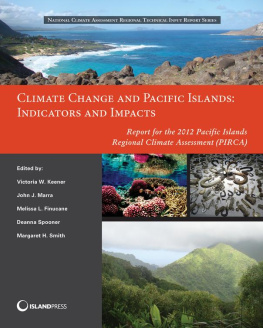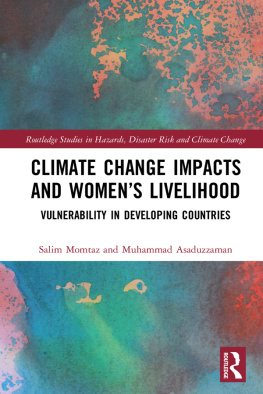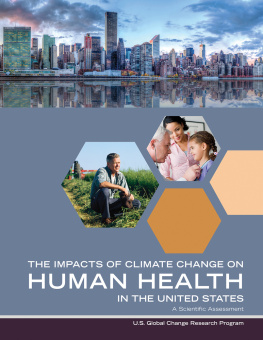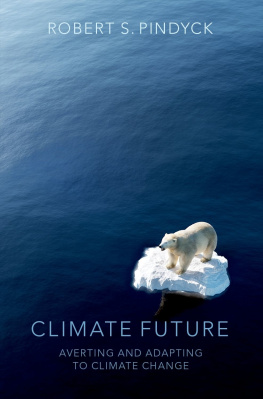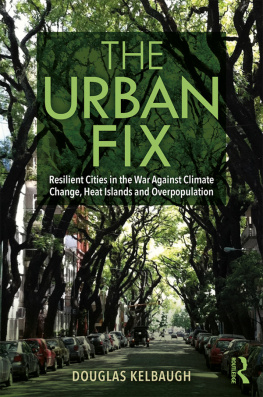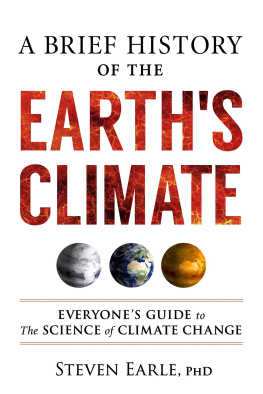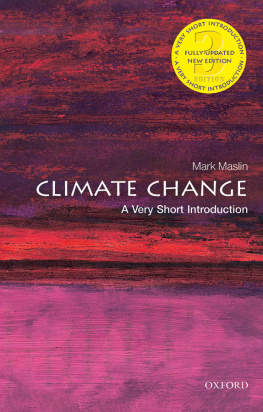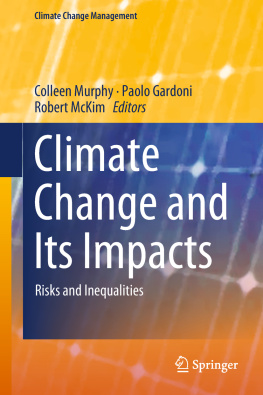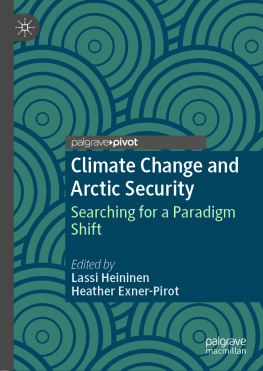Since 1984, the nonprofit Island Press has been stimulating, shaping, and communicating the ideas that are essential for solving environmental problems worldwide. With more than 800 titles in print and some 40 new releases each year, we are the nations leading publisher on environmental issues. We identify innovative thinkers and emerging trends in the environmental field. We work with world-renowned experts and authors to develop cross-disciplinary solutions to environmental challenges.
Island Press designs and implements coordinated book publication campaigns in order to communicate our critical messages in print, in person, and online using the latest technologies, programs, and the media. Our goal: to reach targeted audiencesscientists, policymakers, environmental advocates, the media, and concerned citizenswho can and will take action to protect the plants and animals that enrich our world, the ecosystems we need to survive, the water we drink, and the air we breathe.
Island Press gratefully acknowledges the support of its work by the Agua Fund, Inc., The Margaret A. Cargill Foundation, Betsy and Jesse Fink Foundation, The William and Flora Hewlett Foundation, The Kresge Foundation, The Forrest and Frances Lattner Foundation, The Andrew W. Mellon Foundation, The Curtis and Edith Munson Foundation, The Overbrook Foundation, The David and Lucile Packard Foundation, The Summit Foundation, Trust for Architectural Easements, The Winslow Foundation, and other generous donors.
The opinions expressed in this book are those of the author(s) and do not necessarily reflect the views of our donors.
Climate Change and Pacific Islands: Indicators and Impacts
Report for the 2012 Pacific Islands Regional Climate Assessment (PIRCA)
Washington | Covelo | London
2012 The Pacific Islands Regional Climate Assessment (PIRCA)
All rights reserved under International and Pan-American Copyright Conventions. Reproduction of this report by electronic means for personal and noncommercial purposes is permitted as long as proper acknowledgment is included. Users are restricted from photocopying or mechanical reproduction as well as creating derivative works for commercial purposes without the prior written permission of the publisher.
ISLAND PRESS is a trademark of the Center for Resource Economics.
Manufactured in the United States of America
Note: This technical input document in its current form does not represent a Federal document of any kind and should not be interpreted as the position or policy of any Federal, State, Local, or Tribal Government or Non-Governmental entity
Citation: Keener, V. W., Marra, J. J., Finucane, M. L., Spooner, D., & Smith, M. H. (Eds.). (2012). Climate Change and Pacific Islands: Indicators and Impacts. Report for The 2012 Pacific IslandsRegional Climate Assessment. Washington, DC: Island Press.
To cite specific information, please use the citation at the beginning of each chapter.
Keywords: Climate change, climate variability, Pacific islands, freshwater resources, hydrology, drought, flooding, coastal inundation, sea-level rise, adaptation, island ecosystems, climate modeling, ENSO, data and monitoring, fisheries, climate risks, downscaling, extreme events, climate change indicators, atolls, coral reefs, decision making, natural resource management
About This Series
This report is published as one of a series of technical inputs to the National Climate Assessment (NCA) 2013 report. The NCA is being conducted under the auspices of the Global Change Research Act of 1990, which requires a report to the President and Congress every four years on the status of climate change science and impacts. The NCA informs the nation about already observed changes, the current status of the climate, and anticipated trends for the future. The NCA report process integrates scientific information from multiple sources and sectors to highlight key findings and significant gaps in our knowledge. Findings from the NCA provide input to federal science priorities and are used by U.S. citizens, communities, and businesses as they create more sustainable and environmentally sound plans for the nations future.
In fall 2011, the NCA requested technical input from a broad range of experts in academia, private industry, state and local governments, non-government organizations, professional societies, and impacted communities, with the intent of producing a better informed and more useful report in 2013. In particular, the eight NCA regions, as well as the Coastal and the Ocean biogeographical regions, were asked to contribute technical input reports highlighting past climate trends, projected climate change, and impacts to specific sectors in their regions. Each region established its own process for developing this technical input. The lead authors for related chapters in the 2013 NCA report, which will include a much shorter synthesis of climate change for each region, are using these technical input reports as important source material. By publishing this series of regional technical input reports, Island Press hopes to make this rich collection of information more widely available.
This series includes the following reports:
Climate Change and Pacific Islands: Indicators and Impacts
Coastal Impacts, Adaptation, and Vulnerabilities
Great Plains Regional Technical Input Report
Climate Change in the Midwest: A Synthesis Report for the National Climate Assessment
Climate Change in the Northeast: A Sourcebook
Climate Change in the Northwest: Implications for Our Landscapes, Waters, and Communities
Oceans and Marine Resources in a Changing Climate
Climate of the Southeast United States: Variability, Change, Impacts, and Vulnerability
Assessment of Climate Change in the Southwest United States
Electronic copies of all reports can be accessed on the Climate Adaptation Knowledge Exchange (CAKE) website at www.cakex.org/NCAreports. Printed copies and e-book versions are available for sale on the Island Press website at www.islandpress.org/NCAreports.
About This Report
Climate Change and Pacific Islands: Indicators and Impacts is a report developed by the Pacific Islands Regional Climate Assessment (PIRCA) aimed at assessing the state of knowledge about climate change indicators, impacts, and adaptive capacity of the Hawaiian archipelago and the US-Affiliated Pacific Islands (USAPI). The PIRCA is a collaborative effort engaging federal, state, and local government agencies, non-government organizations, academia, businesses, and community groups to inform and prioritize their activities in the face of a changing climate.
The immediate focus has been on bringing together almost 100 scientific experts and practitioners to generate an integrated report to provide a regional contribution to the National Climate Assessment (NCA), which is conducted under the United States Global Change Research Act of 1990. The PIRCA report examines the adaptive capacity of Pacific Island communities regarding climate change effects on freshwater availability and quality; regional and community economies; urbanization, transportation, and infrastructure vulnerabilities; ecosystem services; ocean resource sustainability and coastal zone management; and cultural resources.
The initial PIRCA activities were conducted August 2011 through February 2012 and included multiple dialogues and three workshops to facilitate sharing, analyzing, and reporting on scientific consensus, knowledge gaps, sectoral needs, and adaptive capacity for addressing the changing climate. The material presented in this report is based largely on published research. The report was reviewed and approved by the PIRCA Steering Committee, and workshop participants were invited to comment on the draft report. Several reviewers independent of the PIRCA process also provided comments.

